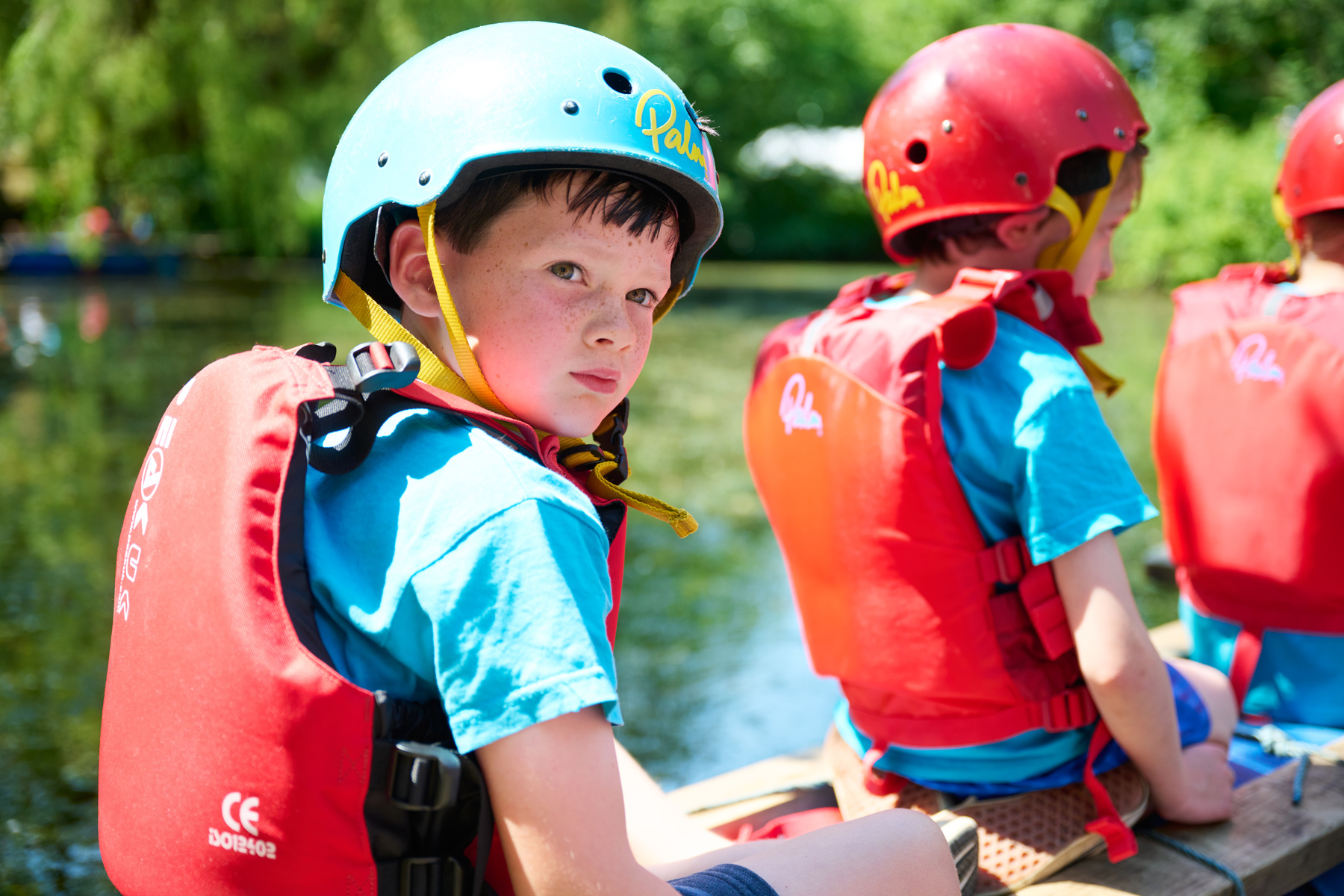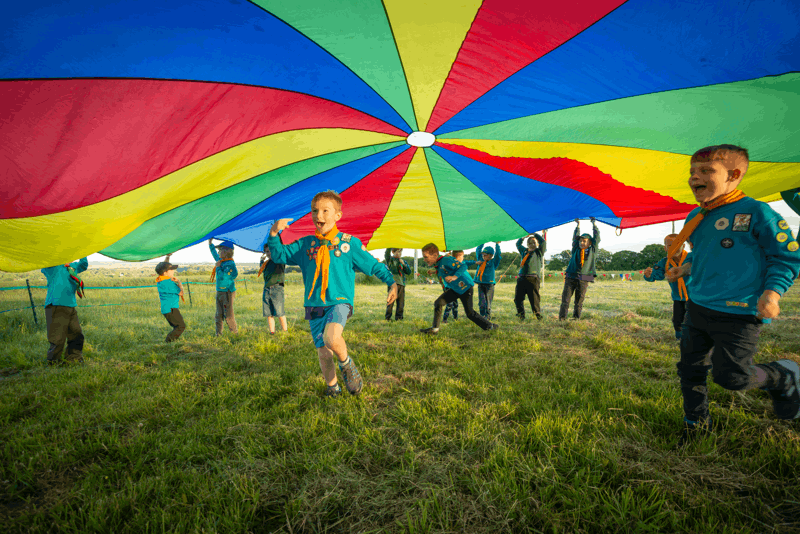Approving Activities - Guidance for Commissioners
FS120015 (Published January 2022, replacing April 2020)
POR rule 9.1 requires the Commissioner to approve all activities within Scouts for their area. This can be done through a variety of methods which this document explores.
It's important that there’s oversight of the programmes and activities being undertaken with each District to make sure that members are delivering high quality and safe Scouts.
As the District Commissioner, you’re responsible for making sure that all activities are approved, but this doesn’t have to be down to you knowing about everything going on across your District on every occasion.
Options for approval
The Group Scout Leader (GSL) and District Explorer Scout Commissioner's (DESC) should have sight of their section programmes, and be clear on what they need to highlight or flag to you.
You may choose to want to know more about certain activities. For example, this could include activities that are away from the normal meeting place, with an external provider or using an activity permit.
You may put in place a system that allows those leading adventurous activities using their permits to only notify their GSL or DESC, given you have already granted them the permit.
Consider who needs to approve activities on Class C waters, in Terrain Zero or where there are specific rules, but permits are not needed.
For Nights Away events and visits abroad, there’s a structured approval process outlined in POR, with forms in place to support the notification and approval process. There may be elements of these processes that you need others in the District to assist with, so make sure you document that and make it clear what their role in the process is.
You should also consider how approval will work if things change, such as a change in activity during a nights away activity or a last minute change during a section meeting. You need to be clear with members on what they need to do when plans change, so they don’t get caught out on not having things approved, but also keeping things practical and so that activities can continue.
Some examples of how you might structure this approval process are given below, these are only examples and it’s down to you to make the decisions based on your local situation.

Document and communicate the systems
Whichever system you put in place make sure you document it and then communicate it to all involved. That includes existing and new members of your area.
Spend time with those directly involved in the process, the GSLs and DESCs you’re involving, so that they understand what’s required of them and so they are in a position to make sure that the system is implemented properly.
Make sure that adult volunteers are aware of the systems in place for approving activities. You should encourage this to be discussed at District and Group meetings, and remind people regularly of your local system.
Review
It's important to review the systems you have in place for approval of activities. For example, you should review a system if it doesn’t work, if people don’t understand it, or if you as the Commissioner don’t feel comfortable with it.
Make sure you review the system regularly and revise it as appropriate. Keep up to date with updates from Scouts HQ and revise your local system if this is required.
When you’re new in role as a District Commissioner (DC), you shouldn’t feel you have to stick with what’s gone before. You need to assure yourself that the process you have in place is robust and works.

Examples
Here are two examples of how you might structure this approval process. These are only examples and it’s down to you to make the decisions based on your local situation.
Authorising Activities in Blankshire District
POR (rule 9.1) states that “the District Commissioner is responsible for approving all activities for Squirrel Scouts, Beaver Scouts, Cub Scouts, Scouts and Explorer Scouts. This will usually be by means of an informal system agreed between the District Commissioner and each Group Scout Leader or District Explorer Scout Commissioner”.
This documents the delegated responsibilities for authorising activities under POR Rule 9.1 in Blankshire District.
1. Group Scout Leaders are responsible for authorising all activities that take place in Squirrel, Beaver, Cub and Scout sections in their Group (except those mentioned elsewhere in this document). Group Scouts Leaders will need to see and consider every section’s programme.
2. The District Explorer Scout Commissioner is responsible for authorising all activities that take place in Explorer Scout Units in the District (except those mentioned elsewhere in this document). The District Explorer Scout Commissioner will need to see and consider every Unit’s programme.
3. If, in any instance, a Group Scout Leader or the District Explorer Scout Commissioner is unsure whether to authorise a particular activity, they must discuss it with the District Commissioner.
4. All Form NANs for Nights Away activities must be sent to Fred Bloggs, Deputy District Commissioner, who is responsible for checking that the information provided on the form complies with the requirements for Nights Away.
Approval of activities will be discussed at each District Team meeting to ensure that everyone is comfortable with the process outlined above and applying consistency, also providing an opportunity for the system to be reviewed and amended as appropriate.
Authorising Activities in Wilderness District
POR (rule 9.1) states that “the District Commissioner is responsible for approving all activities for Squirrel Scouts, Beaver Scouts, Cub Scouts, Scouts and Explorer Scouts. This will usually be by means of an informal system agreed between the District Commissioner and each Group Scout Leader or District Explorer Scout Commissioner”.
This documents the delegated responsibilities for authorising activities under POR Rule 9.1 in Wilderness District.
1. Group Scout Leaders are responsible for authorising all activities that take place in Squirrel, Beaver, Cub and Scout sections in their Group (except those mentioned elsewhere in this document). Group Scouts Leaders will need to see and consider every section’s programme.
2. The District Explorer Scout Commissioner is responsible for authorising all activities that take place in Explorer Scout Units in the District (except those mentioned elsewhere in this document). The District Explorer Scout Commissioner will need to see and consider every Unit’s programme.
3. If, in any instance, a Group Scout Leader or the District Explorer Scout Commissioner is unsure whether to authorise a particular activity, they must discuss it with the District Commissioner.
4. Where an activity is covered within the Adventurous Activity Permit Scheme and led by a member of the District holding the relevant permit, the GSL / DESC must be aware of the activity taking place on each occasion (see points 1 and 2). If you are using someone from outside the District with a permit the DC must be informed.
5. All Nights Away and Visits Abroad will be approved directly by the District Commissioner.
6. The following activities must be notified to the District Commissioner who will seek appropriate advice on suitability ahead of approving the activity to take place: shooting, air activities, motor sports.
7. For activities and events involving only adults (adult only nights away 9.2, and adult groups undertaking activities 9.8) the District Commissioner must be notified of the activity taking place.
Approval of activities will be discussed at each District Team meeting to ensure that everyone is comfortable with the process outlined above and applying consistency, also providing an opportunity for the system to be reviewed and amended as appropriate.
The examples above are only examples. Make sure the document you have is clear to all on what process you have in place.
You might have some additional considerations based on the specifics of your District or area. Here are some examples that may shape how you structure your approval process:
- You may have a Group that have a shooting range at their meeting place and you’ve a system for checking their instructors are qualified. In this case you might choose to list them as exempt from notifying the DC on each occasion of the activity taking place, as this would be monitored by the GSL.
- You may have an Air Scout Group that regularly undertake flying activities through a partnership with a local provider. You’re satisfied that they’re following the rules and so list them as exempt from notifying the DC and that the GSL can approve the activity taking place.
- You may have a local campsite that has a variety of activities. The Campsite Warden is aware of all activities and, so long as they are delivered in line with the operating procedures laid out for the site, you don’t require notification to the DC.
Policy, Organisation and Rules
Rule 9.1 All activities

Discover further guidance
Take a look at our: